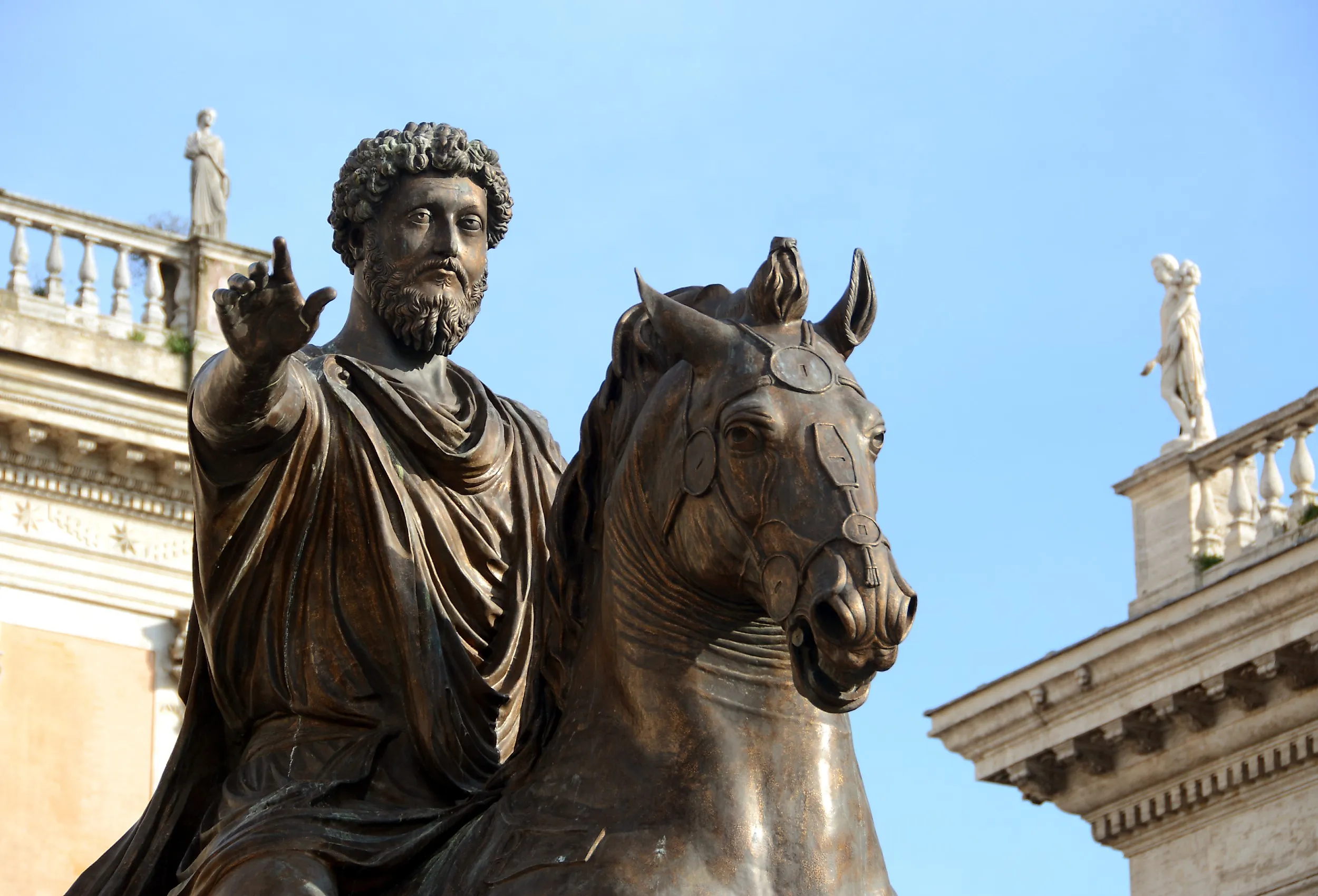
Philosophers of Stoicism You Should Know
The concept of a stoic attitude is widely recognized, yet many of the early philosophers have been largely forgotten. To be stoic involves refraining from complaints or emotional expressions, even amidst dire circumstances. This principle stems from stoicism, a philosophy that highlights personal responsibility, reasoning, and acceptance. Founded by Zeno in Ancient Greece, stoicism has seen numerous influential practitioners throughout history. Below are several individuals who significantly impacted this philosophy.
Who Were The Stoics?
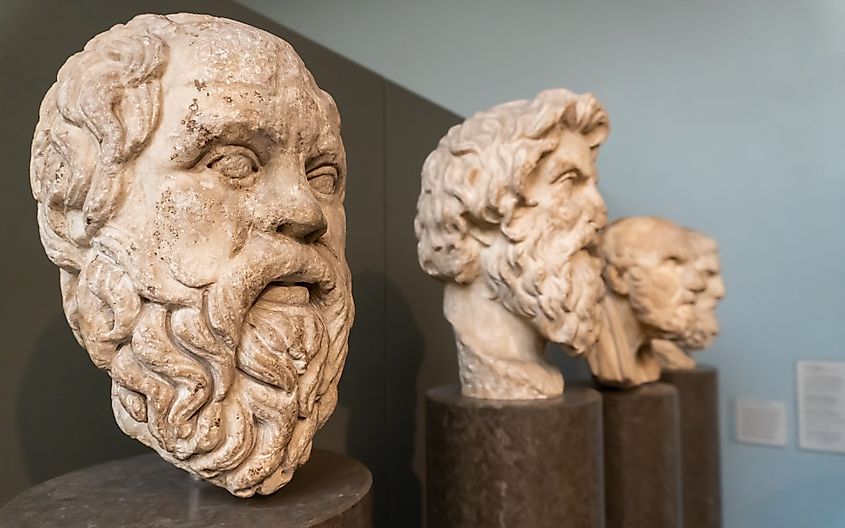
Stoicism originated in 300 BCE when Zeno of Citium established it in Athens. It was significantly influenced by the ideas of Socrates and Diogenes of Sinope and became a notable philosophical tradition in the Greek and Roman worlds.
Central to stoic thought are the principles of logic and virtue. The philosophy emphasizes the importance of accepting events with a resolute mindset, alongside focusing on how you can influence what is within your control.
In addition to acceptance and personal responsibility, stoics aimed for eudaimonia, a concept that reflects happiness and human flourishing. Different stoics throughout history interpreted the philosophy in various ways. Key figures in stoicism include Epictetus, Marcus Aurelius, and Seneca.
Zeno of Citium
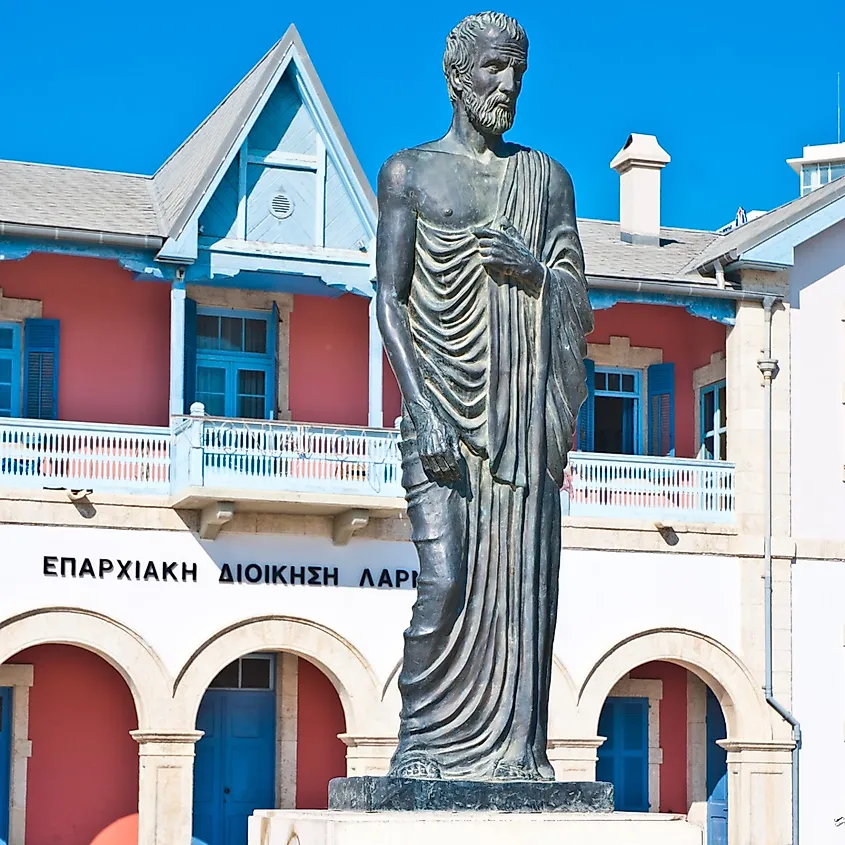
Zeno of Citium ranks among the most impactful philosophers of the ancient era. As the founder of Stoicism, his thoughts significantly influenced many during the Hellenistic period. Although he hailed from Citium in Cyprus, his Greek name leads most to classify him as a Greek philosopher.
Zeno's philosophical journey began in 312 BCE as he attended lectures by cynic philosophers in Athens. During his studies, he formulated his own philosophical ideas and commenced teaching in a painted colonnade called the Stoa Poikile around 301 BCE. This is the origin of the term 'stoic philosophy.'
Zeno initiated stoicism with a philosophical system encompassing logic, physics, and ethics. In his view, ethics played a crucial role in stoic philosophy. He advocated that individuals could achieve happiness by aligning their will with reason, which he believed governed the universe. Much of Zeno's thought drew from the Cynic school; for instance, he stressed the importance of living in harmony with nature, renouncing material possessions, and promoting a life characterized by simplicity and self-restraint. Regrettably, Zeno's original works have been lost, but other philosophers have documented his ideas. His philosophy left a significant mark on Roman stoics such as Seneca, Epictetus, and Marcus Aurelius.
Seneca

Seneca, a prominent Stoic philosopher, was one of Rome's key intellectual figures in the mid-1st century CE. His philosophy drew inspiration from Zeno and other early Stoics. He led a fascinating life in ancient Rome, being born to a low-ranking provincial nobleman and engaging with many influential Roman elites. Throughout his life, Seneca was exiled by Emperor Claudius, only to be later recalled. Although he was a friend and tutor to Nero, their friendship was brief.
Seneca's Letters to Lucilius is one of the most renowned works of stoicism. Written during his retirement, these letters feature Seneca encouraging Lucilius to "choose himself a Cato." Cato served as a significant role model for Seneca. In this context, Seneca emphasizes the importance of selecting a personal role model. For Seneca, having such a model is crucial as it offers a standard to aspire to. While this concept is not exclusive to stoicism, Seneca articulates its necessity for achieving a good life. The individual you select as a role model equips you with guiding principles and values to help you manage challenging situations.
Seneca's works not only educate readers about his philosophy but also inspire them to engage with philosophy themselves. His writings were provocative for their time, challenging Roman society and its values. He questioned the validity of widely accepted beliefs, such as the notion that death is evil, that wealth is inherently good, and that anger is justifiable. Throughout his life, Seneca sought to embody the principles derived from his philosophical conclusions. Although he acknowledges that he did not always meet this ideal, his earnest attempts to do so have made him one of the most compelling Stoics.
Epictetus
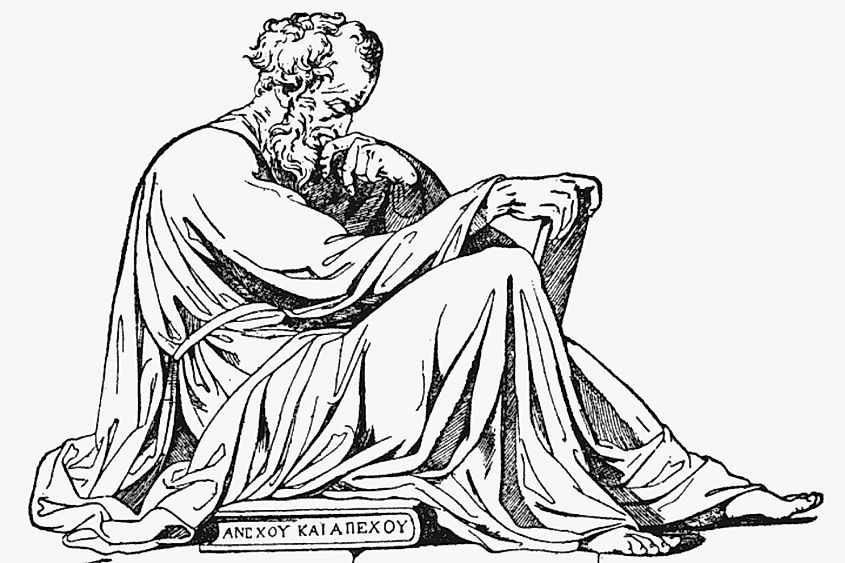
Epictetus was a Stoic philosopher who faced adversity from the start. Born into slavery in Hierapolis, Phrygia, he spent his early years as a slave to Epaphroditus, a wealthy freedman. Despite his circumstances, Epictetus cultivated a strong interest in philosophy. Recognizing his intellectual potential, his master encouraged him to explore Stoicism further. He became a student of the Stoic teacher C. Musonius Rufus, from whom many of his ideas were derived.
After Nero's death, Epictetus gained freedom and began teaching philosophy in Rome. However, when Domitian became emperor, he expelled philosophers from the city, leading Epictetus to relocate to Epirus, Greece. There, he pursued his love for philosophy and established a philosophical school. It is widely believed that his student Arrian documented his teachings in the works Discourses and Enchiridion.
In his writings, Epictetus discusses the concept of logos. He asserts that everyone has a duty to lead their best life. Although he acknowledged that people have freedom of choice in all areas, he argued that logos imposes limitations on this freedom. Logos, which translates roughly to speech, also encompasses the expression of thought. According to Epictetus, logos serves as an external and uncontrollable force that forms and directs the workings of the universe. In various translations, his concept of logos is often equated with God. Despite the limitations imposed by logos, Epictetus maintained that individuals retain the capacity to interpret their situations and choose how to respond. This notion of responsibility, personal choice, and free will lies at the core of Epictetus's philosophy.
Marcus Aurelius
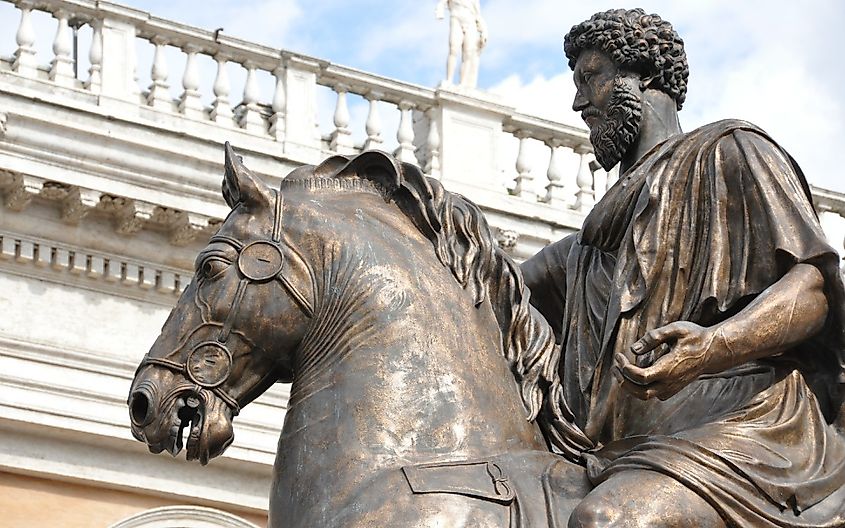
Marcus Aurelius stands out as one of the most esteemed Roman Emperors in history and is recognized as the last of the five good emperors of Rome. He is notable for being a prominent Stoic philosopher, particularly known for his writings in the book Meditations. Born into a wealthy family in Rome, Aurelius dedicated his youth to being a diligent student. He pursued studies in Latin and Greek, with a keen interest in philosophy, particularly Stoicism, where he emphasized reason, personal responsibility, and self-restraint.
Aurelius' philosophy has garnered immense respect, and many believe he personified the concept of the Philosopher King. This idea, introduced in Plato's Republic, describes an ideal ruler who possesses both political acumen and philosophical wisdom. In Plato's work, the Philosopher King governs with the intention of benefiting his people rather than pursuing personal interests. Aurelius emphasizes the importance of duty to others in his book, Meditations, asserting that people exist for one another and clarifying everyone's obligation to their fellow beings. Thus, he truly exemplified Plato's vision of the Philosopher King.
Why Do The Stoics Matter?
Stoicism, an ancient philosophy, remains relevant today. Although our lives differ from those of people centuries ago, we still encounter many of the same challenges. Issues like patience, accountability, acceptance of circumstances, and alignment with personal values persist. The goal of Stoicism is to guide individuals toward self-improvement, focusing on what they can control and leading virtuous lives. Exploring the teachings of the Stoics opens the door to understanding Stoicism—a philosophy with valuable lessons for everyone.











